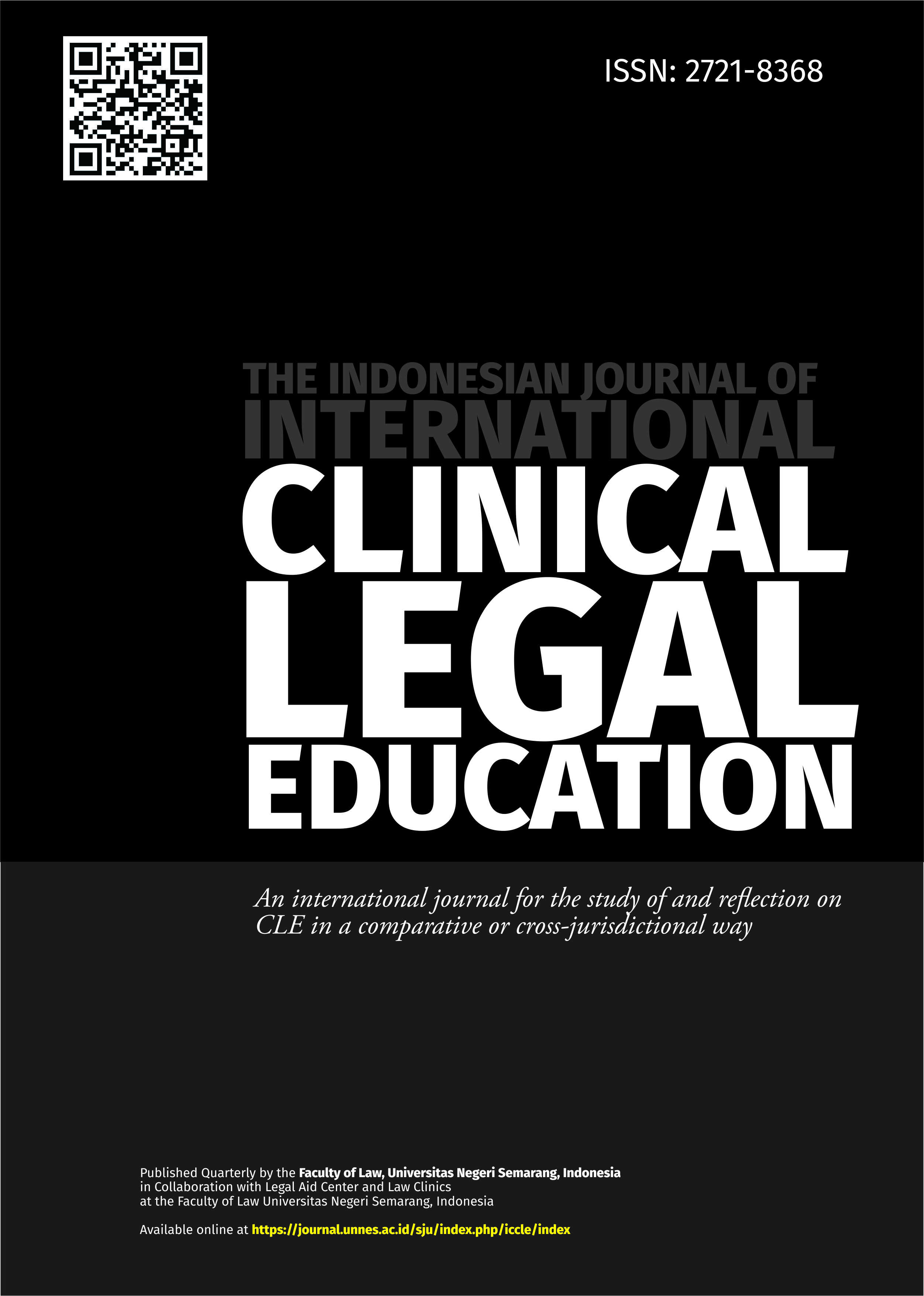Religious Tolerance: Does Indonesian Law Really Guarantee It?
Main Article Content
Abstract
Legal protection given by the state of Indonesia to the followers of religion as has been stated in the first principle of Pancasila the divinity of the Almighty, in which the state of Indonesia, although not a country based on a particular religion but the state of Indonesia is a religious country, so that every adherent of religion guaranteed their rights and legally protected from all actions that harm the adherents of that religion. Legal protection has been contained in the 1945 Constitution of the State of the Republic of Indonesia in Article 28 E, 28 J and Article 29. The rights and freedom of religion may be limited to its fulfillment if it has the potential to interfere and interfere with the rights and freedoms of others. This is in accordance with the principle of harm-principle proposed by Jhon Stuart Mill and the view of Asma Jahangir who argued that the concept of restriction of religious freedom is only at the level of the external forum.
Article Details

This work is licensed under a Creative Commons Attribution-ShareAlike 4.0 International License.
The copyrights of the article in Indonesian J. Int'l Clinical Leg. Educ. is on the Author(s), however, before publishing, it is required to obtain written confirmation from Author(s) in order to ensure the originality (Author Statement of Originality). The statement is to be signed by at least one of the authors who have obtained the assent of the co-author(s) where applicable. This work licensed under a Creative Commons Attribution-ShareAlike 4.0 International (CC BY-SA 4.0). All writings published in this journal are personal views of the authors and do not represent the views of this journal and the author's affiliated institutions.
References
Ake, M. (2019). Kehidupan Toleransi Beragama di Sekolah. Jambura Early Childhood Education Journal, 1(2), 46-54.
Arifin, R., & Utama, M. A. R. (2020). Future Impact of the ASEAN-Russia Law Declaration to the International Terrorism: Can We Combat Terrorist Without War?. Russian Law Journal, 8(2), 4-27.
Arifin, R., Helmi, H., Nte, N. D., Waspiah, W., & Latifiani, D. (2021). The adversity on establishing places of worship: has religious freedom failed in Indonesia?. Legality: Jurnal Ilmiah Hukum, 29(1), 93-113.
Arifin, R., Masyhar, A., & Amira, B. (2020). The Invisible Big Waves: How Indonesia Combat with Radicalism and Terrorism in Global Perspective. HIKMATUNA, 6(1), 105-121.
Arikunto, S. (1998). Prosedur Penelitian Suatu Pendekatan Praktek. Jakarta: Rineka Cipta.
Asshiddiqie, J. (2005). Demokrasi dan Hak Asasi Manusia. Jakarta: Mahkamah Konstitusi.
Azwan, A. (2007). Metode Penelitian. Yogyakarta: Pustaka Pelajar.
Bakar, A. (2016). Konsep Toleransi dan Kebebasan Beragama. Toleransi: Media Ilmiah Komunikasi Umat Beragama, 7(2), 123-131.
Digdoyo, E. (2018). Kajian Isu Toleransi Beragama, Budaya, dan Tanggung Jawab Sosial Media. JPK (Jurnal Pancasila dan Kewarganegaraan), 3(1), 42-59.
Habermas, J. (2004). Religious Tolerance—The Pacemaker for Cultural Rights. Philosophy, 79(1), 5-18.
Hamdan, A. (2000). Kerukunan Umat Beragama (https://e-dokumen.kemenag.go.id/files/qZz5cYJw1308803027.pdf)
Hermawati, R., Paskarina, C., & Runiawati, N. (2017). Toleransi antar umat beragama di Kota Bandung. Umbara: Journal of Anthropology, 1(2), 105-124. ttps://doi.org/10.24198/umbara.v1i2.10341
Husaen, M. (2011). Mengaji Pluralisme. Bandung: Pustaka Nuansa.
Idami, Z. (2016). Perlindungan Hukum oleh Negara Kepada Pemeluk Agama di Indonesia dan Perbandingannya dengan Ketentuan dalam Islam. Kanun Jurnal Ilmu Hukum, 18(1), 69-92.
Jamaludin, A. N. (2018). Konflik dan Integrasi Pendirian Rumah Ibadah di Kota Bekasi. Jurnal Socio-Politica, 8(2), 227-238.
Jufri, M. (2016). Pembatasan terhadap Hak dan Kebebasan Beragama di Indonesia. Jurnal Ilmiah Pendidikan Pancasila dan Kewarganegaraan, 1(1), 40-47.
Mill, J. S. (1961). The Philosophy of John Stuart Mill: Ethical, Political, and Religious. New York: Modern Library.
Nasution, S. (1996). Metode Research. Bandung: Bumi Askara.
Newman, J. (2019). Foundations of Religious Tolerance. Toronto: University of Toronto Press.
Nurlina, N., & Busro, B. (2021, April). The Concept of Religious Tolerance in Indonesia According to Buya Hamka in Tafsir Al-Azhar. In Gunung Djati Conference Series (Vol. 4, pp. 467-479).
Pius A. P., & Dahlan, M. (1994). Kamus Ilmiah Popular. Surabaya: Arkola.
Raharjo, S. (2000). Ilmu Hukum. Bandung: Citra Aditya Bhakti.
Republic of Indonesia. (1945). Undang-Undang Dasar Negara Republik Indonesia Tahun 1945.
Republic of Indonesia. (1999). Undang-Undang Nomor 39 Tahun 1999 Tentang Hak Asasi Manusia.
Rotaru, I. G. (2017). Freedom of Religion, Always a Hot Issue. Jurnalul Libertății de Conștiință, 5(1), 545-550.
Sunardi, S. T. (1996). Keselamatan Kapitalisme Kekerasan. Yogyakarta: LKIS.
Usman, S. (2001). Hukum Islam. Jakarta: Gaya Media Prata.
Widayati, S., & Maulidiyah, E. C. (2018, December). Religious Tolerance in Indonesia. In Proceedings of the 2nd International Conference on Education Innovation (ICEI 2018) (Vol. 212, pp. 685-688).
